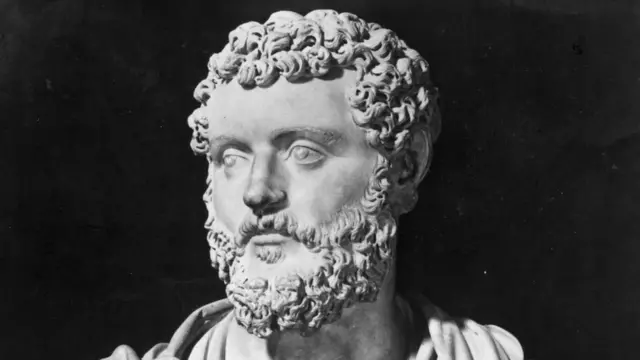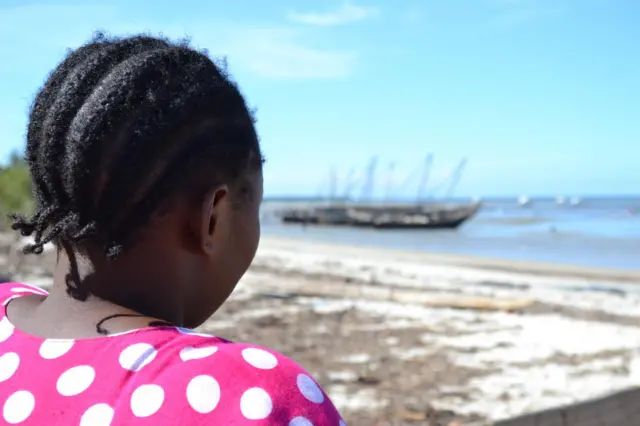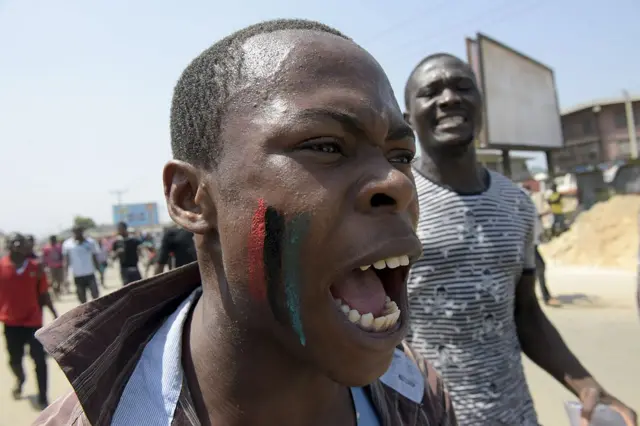Snake pastor feeds people cockroachespublished at 10:20 GMT 14 November 2017
South Africa's notorious snake pastor Penuel Mnguni has fed cockroaches to two brothers in his congregation, alleging that the insects turned into cheese for the one and spices for the other.
The incident comes about five months after Mr Mnguni appeared at a service hosted by popular Nigerian televangelist TB Joshua, and confessed, according to Mr Joshua, "feeding snakes to the people is not biblical".
Allow X content?
This article contains content provided by X. We ask for your permission before anything is loaded, as they may be using cookies and other technologies. You may want to read X’s cookie policy, external and privacy policy, external before accepting. To view this content choose ‘accept and continue’.
Mr Mnguni's church put up a Facebook post about the cockroach-eating incident earlier this month, saying that the self-styled pastor "called a cockroach to appear in the church".
"He then called out the congregation to come forward and eat.... Two brothers came and shared it with each other, As they were eating it by the surprise to Mr Charles it tasted like a cheese that is not ordinary and to Mr Eric it tasted like spice," the post said.
"The man of God declared that as they ate their level of teaching will grow and it will never be the same. As he spoke this words the power of God touched them both greatly as they partook what is from the father," it added.
The church also reported in another post that the pastor prayed on a poisonous flower, and a worshipper ate it and "enjoyed it to the extent that he asked to eat the whole flower alone and finished it".
"The Prophet of God declared that whatever he came for, God has granted him," the post said.
The self-styled prophet first caused controversy in South Africa in 2015 after being accused of making people eat snakes, rats and hair.
Charges against Mr Mnguni, laid by the Society for the Prevention of Cruelty to Animals, were provisionally withdrawn in July 2015 because of a lack of evidence.




